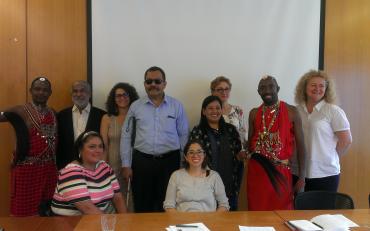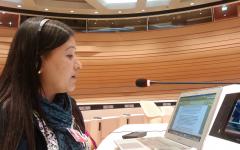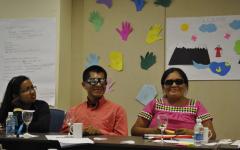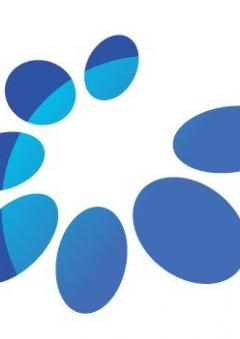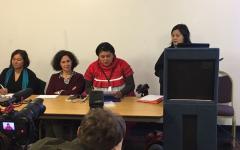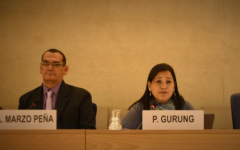The International Day of the World’s Indigenous People was celebrated on 9 August, making 10 years since the United Nations Declaration on the Rights of Indigenous Peoples (UNDRIP) was adopted by the UN General Assembly.
This is an occasion to celebrate the successes and draw attention to the diversity of indigenous peoples not only culturally but as human beings with diverse characteristics and identities, including being persons with disabilities. The UNDRIP, being the most comprehensive international instrument on the rights of indigenous peoples, is a success itself. After 20 years of negotiations, it is the solidification of indigenous peoples, states, international organizations and other stakeholders coming together to promote and protect the rights of indigenous persons at the local, national, regional and international levels.
During the celebrations, Setareki Macanawai, co-chair of the Indigenous Persons with Disabilities Global Network (IPWDGN), declared: “Indigenous persons with disabilities have also good reasons to celebrate this important day. We established our Indigenous Persons with Disabilities Global Network in 2013; a network representing indigenous persons with disabilities from all seven geo-political regions of the indigenous peoples.”
Indigenous persons with disabilities face multiple discrimination and barriers to participate in society, including access to development programmes and funds, education, employment, health care, communication and transportation services. Indigenous persons with disabilities are overrepresented among those living in absolute poverty, and continue to exist as one of the world’s most vulnerable populations.
The participation and inclusion of persons with disabilities should be central to policy-making, programming, implementation and monitoring and evaluation mechanisms addressing the rights of indigenous peoples. Only an inclusive and empowered society will ensure that no one is left behind. Mr Macanawai highlighted that “the development of the rights of indigenous person with disabilities means that decisions are not taken without our consultation and participation through our representative organisations. This development must also be in accordance with the UN Declaration on the Rights of Indigenous Peoples and the UN Convention on the Rights of Persons with Disabilities.”
Expert Mechanism on the Rights of Indigenous Peoples
In this regard, the Indigenous Persons with Disabilities Global Network (IPWDGN) reinforced its commitment to advance the enjoyment of the rights of indigenous persons with disabilities during the 10th session of the Expert Mechanism on the Rights of Indigenous Peoples (EMRIP), mid-July 2017. Its members, Olga Montúfar, from Latin America, Setareki Macanawai, from the Pacific region, Manase Ntutu, from Africa, and Pratima Gurung, from Asia, reaffirmed their position as an indigenous group willing to cooperate with states and other development and human rights actors to address main challenges affecting indigenous persons, in particular, those with disabilities, as well as to cooperate on the improvement of development strategies.
It was also during the July 2017 EMRIP session that the IPWDGN held a technical workshop, with support from IDA and the Disability Rights Advocacy Fund (DRAF), offering their expertise to state representatives, UN mechanisms, IDDC members, development and human rights actors.
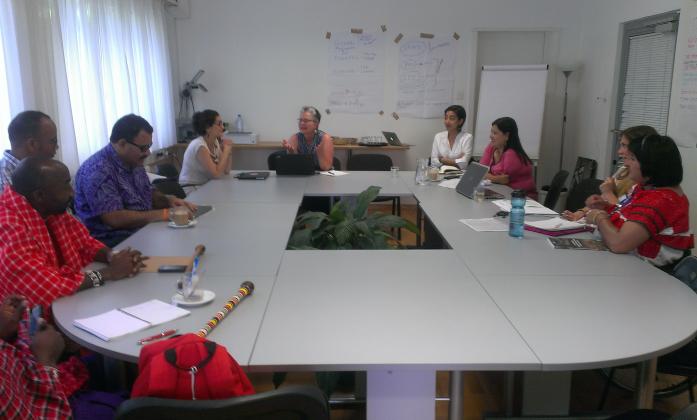
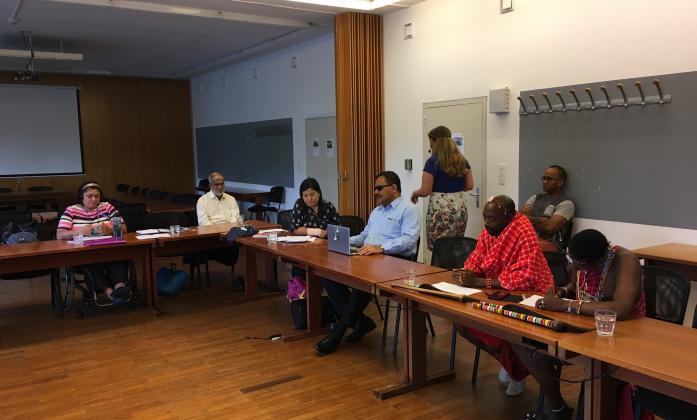
Through a series of meetings, members of the IPWDGN exchanged with the Special Rapporteur on the Rights of Persons with Disabilities - Catalina Devandas, the Special Rapporteur on the Rights of Indigenous Peoples - Victoria Tauli, Independent Experts of the EMRIP - Edtami Mansayagan and Erika Yamada, EMRIP Secretariat - Juan Nunez, as well as with Joyce Godio - Asia Indigenous Peoples Pact; Venky Balakrishna - CBR Global Network; Farida Yasmina - Disabled Rehabilitation and Research Association; Karen Heinicke-Motsch - CBM; Nataša Maros and Binasa Goralija - MyRight, and Lucy McKernan - Global Initiative for Economic, Social and Cultural Rights. A report of this technical workshop will be available soon.
First Meeting of Leaders Indigenous Persons with Disabilities in Guatemala
On August 8 and 9, also as part of celebrations of the 10th anniversary of the UNDRIP, indigenous leaders with disabilities met in Guatemala. During this meeting, over thirty leaders from Guatemala, Ecuador, Colombia, Mexico, Peru, Venezuela and El Salvador gathered together to discuss issues faced by indigenous persons with disabilities at local, national and regional levels and opportunities to address the challenges.
The event was organized by the National Council of Attention to Persons with Disabilities (CONADI Guatemala), the Guatemalan Indigenous Development Fund, the Latin American Network of non-Governmental Organizations of Persons with Disabilities and their Families (RIADIS), and the International Disability Alliance (IDA), with support from different partners, including the Disability Rights Advocacy Fund (DRAF). Olga Montúfar, co-chair of the IPWDGN, Ana Lucía Arellano, President of RIADIS, IDA regional member in Latin America, Silvia Quan, IDA’s Senior Human Rights Advisor, and Rosario Galarza, RIADIS’ Human Rights Officer, participated in the meeting.
During the celebrations, Olga Montufar, co-chair of the IPWDGN declared that: “It has been ten years from the UN Declaration on the Indigenous Peoples. The movement of indigenous persons with disabilities has made a relatively recent appearance, both in debates within nation-states as at international organizations. We are the protagonists of our own history standing from the reaffirmation of our indigenous identity as the main axis of our plight. Today, we have new challenges such as the UN General Assembly Ministerial Declaration which was concluded by the global forum and we are ready to take major steps that will enable us to eradicate poverty and eliminate the inequalities in which we live.” A report of this meeting will be available soon.
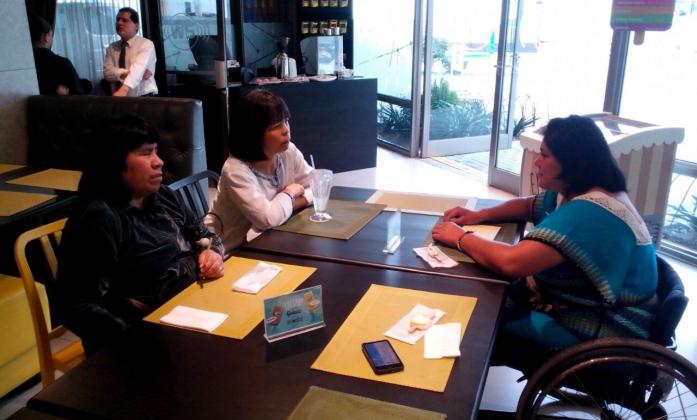

UN monitoring mechanisms
Pratima Gurung, Secretary General of the IPWDGN participated, later July, in the High Level Political Forum, in New York, representing the voices of indigenous peoples at the Stakeholder Group of Persons with Disabilities for Sustainable Development (SD). Early August, she also participated in her country, Nepal, in a technical workshop organized by IDA in preparation to the CRPD parallel report. In both occasions, Ms Gurung contributed to report on the situation of indigenous persons with disabilities to UN monitoring mechanisms, both in human rights and development.
For further information contact tfleury [at] ida-secretariat.org
